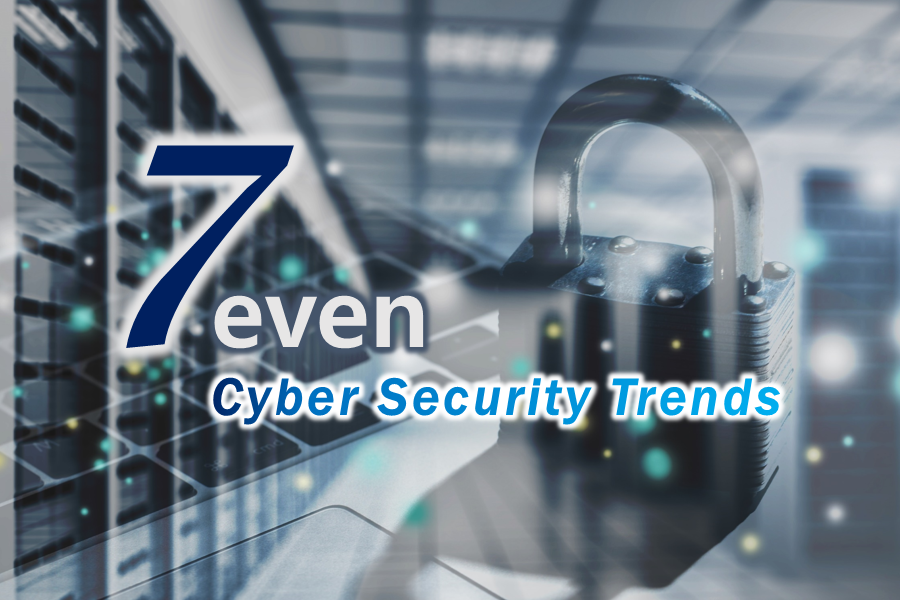Samsung SDS Selects 7 Cyber Security Trends in 2021

+ Diversification of security threats due to increase in remote work and the growth of the data industry while intelligent cyber-attacks using AI and IoT are on the rise
+ The company presents seven cybersecurity trends to focus in 2021 and will introduce related cases and countermeasures at ‘Samsung SDS Cyber Security Conference 2021’ in April
Samsung SDS analyzed several cyber-attacks and security issues that occurred last year and selected seven cybersecurity trends in 2021.
The following are the major keywords: 1) Growing threats in contactless environment 2) Evolving ransomware 3) Intelligent hacking attacks using AI 4) Increased threats against industrial facilities 5) Growing importance of protecting sensitive data including personal information 6) Increased cloud-based cyber-attacks 7) Intensive attacks targeting the medical sector.
The company stressed the need to develop detailed security measures as cyber threats are likely to increase further with the spread of a contactless working environment, acceleration of digital transformation, and growth of the data industry.
1. Remote Work, the Weakest Link
As more companies adopt work-from-home policy during the pandemic, the attempts to hack information through home networks and personal devices are on the rise. Preventing information leaks through work platforms such as messenger and video conferences, not to mention attacks on employees’ smartphones and computers, has become the highest priority of corporate security.
2. Ransomware, One of the Biggest Global Hacking Threats
Ransomware is a type of malware that blocks access to a computer system and threats to leak victim’s data unless a ransom is paid. Ransomware attacks have evolved from targeting unspecified individuals to targeting specific victims. What’s more, several ransomware variants and even Ransomware as a Service (RaaS) have emerged, posing even more serious threats.
3. AI Technologies, New Security Weapons
The development of AI technologies has significantly changed the security landscape. Hackers are finding themselves more successful with the use of AI, and deep fake technology (AI-based video and audio tampering technology) made it easier to distort and manipulate information. AI-based technologies that automatically detect, identify, and analyze multimedia forgeries were developed to respond to such attacks. AI is being used for both cyber-attacks and as a defense against such attacks.
4. Operational Technology (OT) Security for Industrial Facilities
As smart factories based on intelligent systems are emerging along with increased network connections thanks to IoT and 5G, security threats against production facilities and manufacturing processes are also increasing. Cyber-attacks against overseas automobile and oil companies last year show the importance of the security in OT and industrial control systems (ICS) beyond protecting corporate information systems.
5. Data Protection, a Prerequisite for the Development of the Data Industry
Various data protection technologies and solutions have emerged thanks to the recent revision of three data protection acts and the flourishing MyData business in Korea which allows individuals to control and utilize their own data. The data industry not only needs existing encryption technology but also de-identification and privacy protection technologies to guarantee the safe distribution and utilization of private data.
6. Strong Security Systems for Cloud
Recent cloud system issues caused massive connection failures and information breaches, and the attacks targeting cloud systems are growing. In this regard, financial and public organizations with large-scale systems using the public cloud must first establish a detailed security setup and connection management, as well as strict security systems for infrastructure, platforms, and software.
7. Medical Industry under Intensive Hacking Attacks
Medical institutes and pharmaceutical companies suffer intensive hacking and ransomware attacks on their medical information/systems and vaccine data. All of their security systems need to be rigorously checked, including currently running systems, infrastructure, solutions, and policies. At the same time, they need to identify vulnerabilities and come up with countermeasures through systematic consulting.
Samsung SDS offers clients various security solutions and services, such as security consulting, security monitoring and control, cloud security, Endpoint Detection & Response (EDR) for protection against ransomware, and OT security for industrial facilities, to cope with more sophisticated and evolved cyber threats.
In April, at the 'Samsung SDS Cyber Security Conference 2021', seven cybersecurity trends will be presented along with related cases, countermeasures, and the company’s security solutions and services.